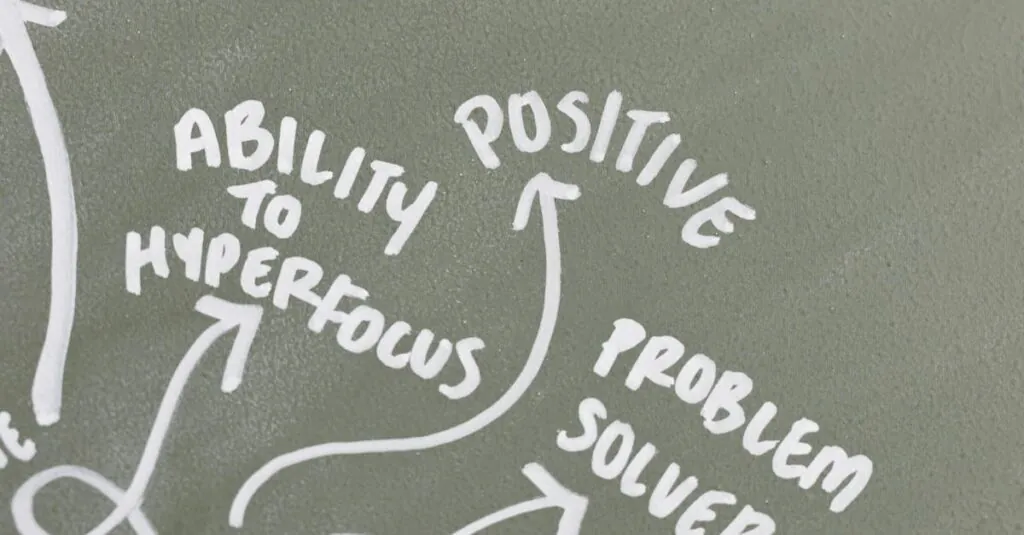In a world overflowing with information, critical thinking is the superhero cape everyone needs. It’s not just about solving problems; it’s about transforming the way one sees the world. Imagine tackling life’s challenges with the finesse of a chess master, anticipating moves and strategizing for success. Sounds appealing, right?
Table of Contents
ToggleUnderstanding Critical Thinking Mastery
Critical thinking mastery enhances personal growth by enabling clearer analysis and informed decision-making. This skill fosters adaptability in an ever-changing world, making individuals more resilient and insightful.
Definition and Importance
Critical thinking encompasses the ability to evaluate information, reason logically, and form sound judgments. It holds significant importance in navigating complex issues and making informed decisions. In a society saturated with information, this skill aids in discerning facts from misinformation. Mastering critical thinking leads to better problem-solving capabilities. Those proficient in this skill experience enhanced creativity and innovation, empowering them to explore multiple perspectives.
Characteristics of Critical Thinkers
Critical thinkers exhibit several defining traits. They question assumptions and seek evidence to support conclusions. Open-mindedness is another characteristic, allowing them to consider diverse viewpoints. Strong analytical skills enable critical thinkers to break down complex problems into manageable parts. They demonstrate effective communication abilities, articulating their thoughts clearly and persuasively. A strong sense of curiosity drives them to ask insightful questions, leading to deeper understanding and knowledge.
The Role of Mindset in Personal Growth
Mindset significantly influences personal growth and development. A person’s mindset serves as a framework for interpreting experiences and challenges.
Fixed Mindset vs. Growth Mindset
A fixed mindset views abilities as static traits that cannot change. Those with this mindset often shy away from challenges due to fear of failure. In contrast, a growth mindset acknowledges that abilities can improve with effort and practice. Individuals embracing this perspective actively seek challenges and learn from setbacks. They understand that personal growth stems from persistence and resilience. According to research by psychologist Carol Dweck, adopting a growth mindset correlates with higher achievement and overall satisfaction. Developing this mindset leads to greater adaptability and a willingness to explore new opportunities.
How Mindset Influences Critical Thinking
Mindset impacts how individuals approach problem-solving and decision-making. Those with a growth mindset engage more deeply with complex issues. They seek diverse perspectives and value constructive feedback that enhances their understanding. Critical thinking requires flexibility in thought processes, which a growth mindset fosters. Individuals who believe in their ability to learn and adapt navigate challenges with increased confidence. This heightened confidence promotes inquiry and evaluation of information. Ultimately, a positive mindset transforms potential barriers into opportunities for learning and insight.
Strategies for Developing Critical Thinking Skills
Practicing critical thinking involves intentional strategies. These approaches enhance one’s ability to evaluate information and make informed decisions.
Techniques for Enhancing Analytical Skills
Identifying underlying assumptions strengthens analytical thinking. Observing patterns in data encourages deeper analysis. Breaking complex problems into manageable components aids clarity in thought. Engaging in discussions with others expands perspectives and fosters collaborative analysis. Evaluating sources for credibility sharpens critical evaluation skills. Exploring various viewpoints allows for a more comprehensive understanding of issues. Practicing regular reflection on decisions enhances self-awareness regarding biases and reasoning processes.
Cultivating Open-Mindedness
Adopting a curious mindset fosters open-mindedness. Questioning one’s own beliefs and assumptions promotes personal growth. Seeking feedback from diverse sources enriches understanding and knowledge. Exploring unfamiliar ideas encourages flexibility in thinking. Engaging with people from different backgrounds allows for valuable insights. Embracing challenges creates opportunities for new learning experiences. Recognizing emotional responses to opposing viewpoints aids in managing bias.
Overcoming Barriers to Critical Thinking
Critical thinking faces various barriers that hinder its effective application. Mental blocks often prevent individuals from analyzing situations objectively and reaching sound conclusions.
Common Mental Blocks
Cognitive limitations can arise from deep-seated beliefs, emotional responses, or stress. Many individuals hold rigid viewpoints that stifle open-mindedness, limiting their ability to consider alternative perspectives. Fear of confrontation also plays a role, causing hesitation in questioning popular opinions. In addition, overconfidence can lead to an acceptance of misinformation, dismissing the need for critical evaluation. Challenging these mental blocks encourages a more flexible approach, allowing individuals to engage with ideas that differ from their own.
Strategies for Defeating Cognitive Biases
Developing awareness of cognitive biases is crucial for enhancing critical thinking. One effective strategy involves actively seeking diverse perspectives to challenge personal assumptions. Engaging in constructive dialogue with others fosters a richer understanding of issues, enhancing analytical skills. Practicing mindfulness can also help identify emotional triggers that cloud judgment. Regularly questioning beliefs forces consistency and encourages adaptability in thought processes. Reflecting on decision-making outcomes promotes learning from past experiences, further refining critical thinking abilities.
Practical Applications of Critical Thinking
Critical thinking has numerous practical applications that enhance personal growth and equip individuals to navigate daily challenges.
In Everyday Decision Making
Critical thinking plays a vital role in everyday decision-making. Individuals encounter numerous choices daily, from simple ones like meal selection to complex issues such as financial investments. Evaluating pros and cons helps to discern the best options. Analyzing information sources allows them to separate fact from opinion. Those who practice critical thinking ask questions and seek clarification, making them more informed consumers. By identifying biases in their own reasoning, they can counteract faulty judgments. Ultimately, honing this skill leads to confident choices and greater life satisfaction.
In Professional Development
Critical thinking significantly enhances professional development. Employees who refine their analytical skills become valuable assets to their organizations. Evaluating data-driven reports fosters sound decision-making, enabling teams to develop effective strategies. Engaging in constructive feedback sessions promotes growth and collaboration. Analyzing market trends keeps professionals ahead of industry changes. Leaders who employ critical thinking inspire innovation and adaptability among team members. This skill fosters an environment where creativity thrives, transforming challenges into opportunities for improvement and success.
Mastering critical thinking is a transformative journey that empowers individuals to navigate life with clarity and confidence. By adopting a growth mindset and embracing the strategies outlined, one can enhance their ability to analyze, evaluate, and make informed decisions. This skill not only fosters personal growth but also enriches professional development, allowing for innovative solutions and effective problem-solving.
As individuals cultivate these abilities, they become more adaptable and resilient in the face of challenges. Critical thinking isn’t just a tool for decision-making; it’s a pathway to deeper understanding and meaningful engagement with the world. Embracing this journey opens doors to endless possibilities for personal and professional success.





